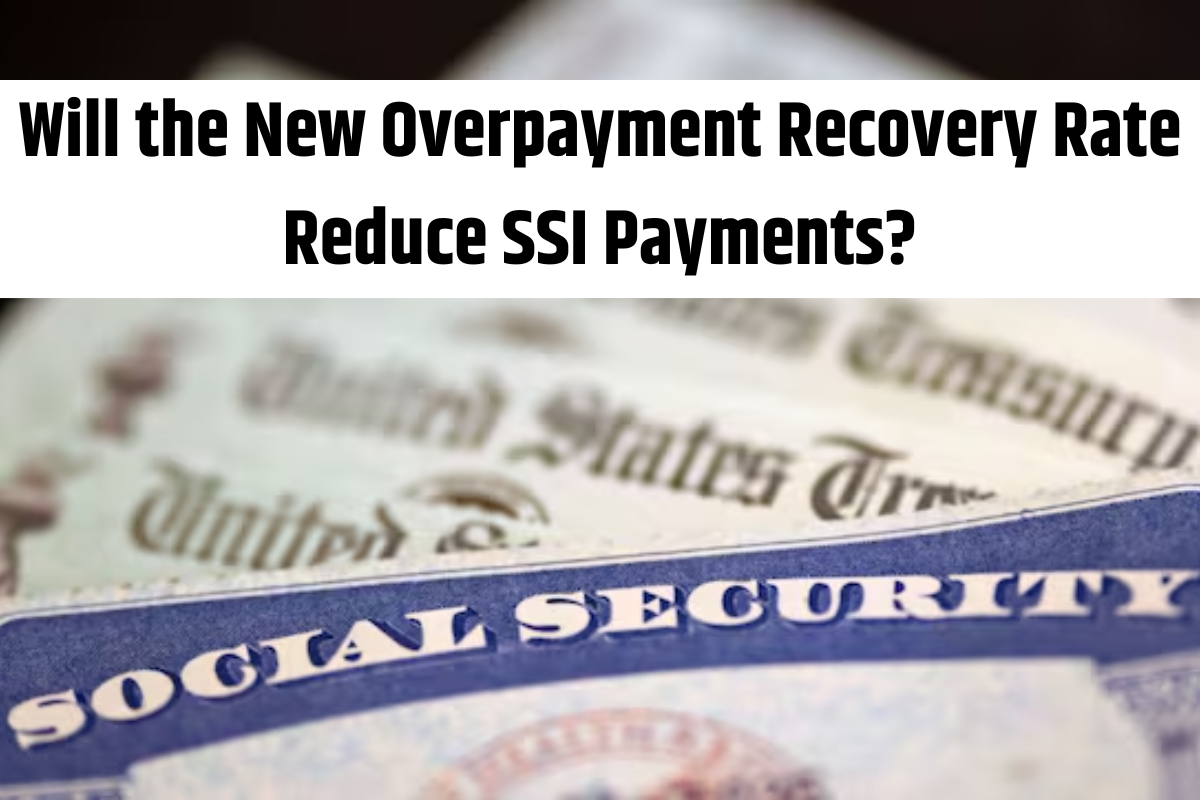The Social Security Administration (SSA) has made an important announcement that will impact millions of Americans receiving benefits. While the SSA is reinstating the overpayment recovery rate for certain beneficiaries, those on Supplemental Security Income (SSI) can rest easy—there will be no changes to their withholding rates.
Key Changes in Overpayment Recovery Rates
In an effort to promote fiscal responsibility and efficiency, the SSA has decided that the default overpayment withholding rate for Social Security beneficiaries will soon be 100% of their monthly benefit payment. However, for those receiving SSI, the withholding rate will remain unchanged at 10%.
This policy ensures that Social Security recipients address their overpayments more quickly, while SSI beneficiaries continue to have a lower repayment rate to avoid financial hardship.
When Will This Change Take Effect?
The new overpayment recovery rate for Social Security beneficiaries will officially take effect on March 27, 2025. Any overpayments that occur after this date will be subject to the 100% recovery rate. This means that if you owe money to the SSA due to an overpayment, your entire monthly Social Security check may be withheld until the debt is repaid.
No Changes for SSI Beneficiaries
The SSA has made it clear that Supplemental Security Income (SSI) recipients will not be affected by this change. The overpayment withholding rate for SSI will remain at 10%, providing continued financial relief for those who rely on these benefits.
What If You’re Not on SSI?
If you receive Social Security benefits (retirement or disability) and are not on SSI, you will receive an official notice from the SSA regarding the new overpayment recovery policy.
- If you have an outstanding overpayment before March 27, 2025, your withholding rate will not change, and no action is required.
- If an overpayment occurs after March 27, 2025, the SSA may withhold 100% of your monthly benefit until the debt is cleared.
This marks a significant increase from the current 10% withholding rate, making it crucial for Social Security beneficiaries to report any changes that could affect their eligibility.
How to Avoid Overpayments
Both Social Security and SSI recipients must report changes in their circumstances to the SSA to avoid overpayments. Common situations that require reporting include:
- Marriage: If you get married, your benefits may be affected depending on your spouse’s income and assets.
- Employment Changes: If you return to work, earn more than the allowed limit, or change jobs, this could impact your benefits.
- Health Improvements: If you receive disability benefits and your condition improves, you may no longer qualify for the same level of assistance.
What Happens If You Can’t Afford to Pay Back Overpayments?
For those struggling financially, the SSA does offer options:
- You can request a waiver if repaying the overpayment would cause financial hardship.
- You can negotiate a payment plan instead of having the full amount withheld.
- You can appeal the overpayment decision if you believe it was made in error.
FAQs
Q: If I receive SSI, will my withholding rate change?
A: No, the SSI overpayment withholding rate will remain at 10%.
Q: When does the new Social Security overpayment policy start?
A: It takes effect on March 27, 2025. Any overpayments after this date will be subject to 100% recovery.
Q: Will I get a notice if I owe an overpayment?
A: Yes, the SSA will send a notice outlining the amount owed and any repayment options.
Q: What happens if I can’t afford to have my full benefit withheld?
A: You can apply for a waiver, appeal the decision, or set up a payment plan.
Q: How can I avoid overpayments?
A: Always report changes in your income, marital status, or disability status to the SSA promptly.
Final Thoughts
While this new rule brings significant changes for Social Security beneficiaries, SSI recipients can breathe a sigh of relief. Staying informed and proactive in reporting changes can help prevent overpayment issues. If you have concerns about an overpayment, be sure to contact the SSA to discuss your options .
